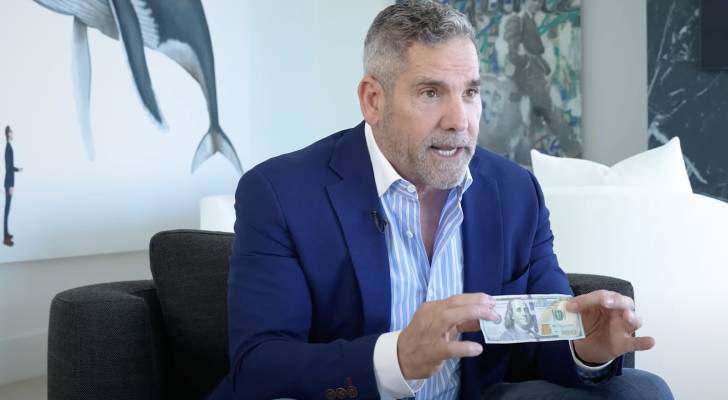Dave Ramsey will get his justifiable share of criticisms for a few of his concepts that appear a little bit … quaint.
Gen Z and Millennial monetary content material creators have lately known as him out for his views on the housing disaster and the cost of childcare. However his unconventional perspective on debt tends to get the most important backlash.
Do not miss
Ramsey’s insistence on a “debt-free” way of life might be so outdated that even his fellow child boomers disagree with him. Actual property mogul Grant Cardone, who’s three years older than Ramsey, isn’t a fan of the “debt-free” way of life.
“I feel Dave’s good for those who wish to keep within the center class,” Cardone said in an episode of The Wealthy Somers Report. To get to the highest, he believes everybody wants a dose of so-called “good debt.”
Right here’s why borrowing cash is such a divisive situation even for ultra-rich entrepreneurs.
Good debt vs. dangerous debt
There’s a bunch of uber-wealthy entrepreneurs who take into account debt an important instrument of their arsenal. Cardone is firmly in that group.
“At Cardone Capital we at all times use debt however by no means over leverage, holding our debt leverage within the 65% vary,” he as soon as said.
“Goldman Sachs ain’t apprehensive about debt,” he instructed Wealthy Somers. “JP Morgan’s not apprehensive about debt. Elon Musk isn’t apprehensive about debt.”
Certainly, Musk has borrowed billions of {dollars} to accumulate corporations comparable to Twitter and billions extra via loans in opposition to his shares to fund his different ventures.
Equally, Jeff Bezos borrowed $2 billion to finance Amazon’s progress through the dot-com bubble.
Entrepreneurs like Cardone, Bezos and Musk take into account debt used to increase a enterprise or bolster investments “good.” Borrowing cash to spend money on appreciating belongings, comparable to a home, or to reinforce your abilities, comparable to scholar loans, might be thought of useful.
Nevertheless, some entrepreneurs imagine that borrowing cash provides danger that’s merely not value it.
Learn extra: ‘It isn’t taxed in any respect’: Warren Buffett shares the ‘best investment’ you can make when battling rising prices — take benefit right this moment
Is all debt “dangerous”?
Like another investor, Dave Ramsey financed his early actual property investments with debt. Nevertheless, a brush with bankruptcy within the Nineteen Eighties left him scarred for all times.
Now, the monetary guru insists on a debt-free path to wealth. “Debt at all times equals danger, and it’s at all times dumb,” he wrote on his web site final yr. “Whereas your calculator could say that leveraging debt will help you get wealthy quicker, it doesn’t take into account danger. However once you pay money for all the things, you don’t have to fret about that danger.”
These sentiments have been echoed by the world’s most well-known investor: Warren Buffett. “You actually do not want leverage on this world a lot,” Buffett as soon as said. “For those who’re good, you are going to make some huge cash with out borrowing.”
Fellow billionaire Mark Cuban as soon as defined that paying off debt was like making an excellent funding: “No matter rate of interest you will have — it may be a scholar mortgage with a 7% rate of interest — in case you repay that mortgage, you’re making 7%. That’s your instant return, which is loads safer than making an attempt to select a inventory or making an attempt to select actual property, or no matter it might be,” he as soon as told CNBC.
It appears clear that there’s a couple of path to success. For most individuals, the selection between “good debt” and “no debt” might rely on their funding model and urge for food for danger.
What to learn subsequent
This text supplies data solely and shouldn’t be construed as recommendation. It’s supplied with out guarantee of any form.

